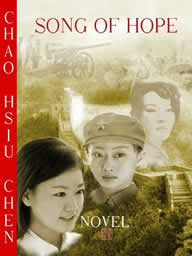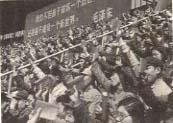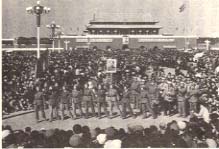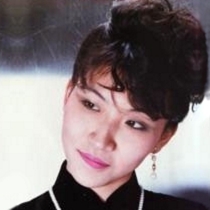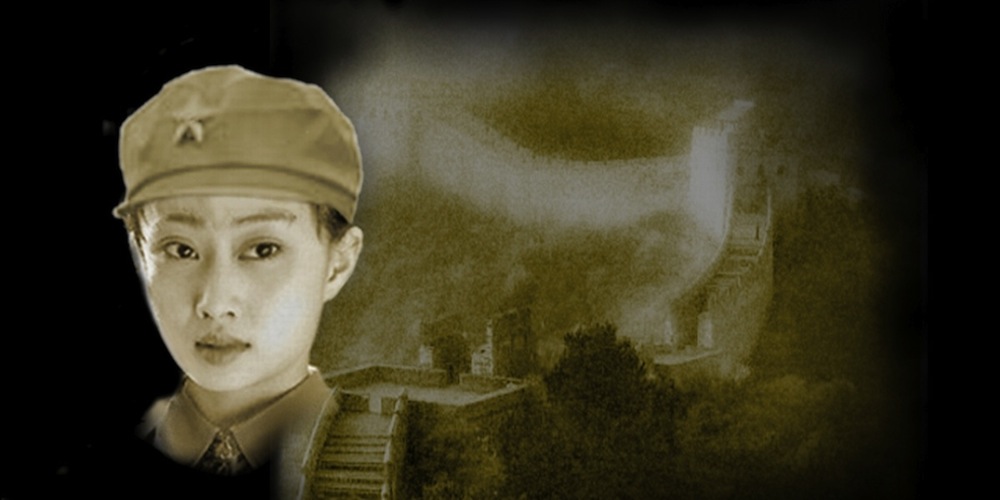
| Home | Moli | Pelin | Lyna | Synopsis | Author |
|
PeLin - MoLi’s daughter MoLi’s daughter, PeLin, works as an archaeologist in XiAn where she meets and marries the German archaeologist Leonhard König. She is a strong minded young woman who has ideals and hopes for her country. She publishes articles criticising many of China’s main newspapers which lead to her execution by the Red Guards during the Cultural Revolution.
The Cultural Revolution from - discovering China, projects by students for students
The Cultural Revolution (CR, abbreviation), it might sound unfamiliar for most people. It broke out more than thirty years ago in China, and few people know what the CR meant and why it happened. What can be said for sure is that it made a big impact on almost all people in China including young students and it had impact even on a lot of people in the world. History Background Impact The Aftermath The Victims of the Cultural Revolution
Wang Guangmai Liu Shoqi Liu Shoqi is a perfect example of a leader misunderstood and misrepresented by the Cultural Revolution. He assumed the role of Vice-chairman in 1949, but because he criticized the Great Leap Forward, Mao criticized him for this throughout the 60's. In October 1966, he was regarded as a "Reactionary bourgeoisie Authority". In May 1967, the criticism campaign targeted him for his supposed ill thoughts. In October 1968, Jiang's group adopted a decision that "Liu should be exiled from the party forever and all his duties be relieved." Liu, who had already been suffering from a severe sickness, was worsened by this news. From this time, he refused to answer any interrogations, showing mute protest. In November 1969, he died a wrongfully accused man, simply because he opposed one of Mao's policies. Wang Guangmai, his wife was also persecuted by the criticize campaign. Her visit for Indonesia with Liu was criticized as "unorthodox". In September 1967, Wang was arrested and imprisoned formally. With Jiang's watchful leadership of Kang Sheng, the special group to investigate Wang, they forced her to confess to various crimes like being a spy of the United States and performing special tasks for Japan and the National Party. Persecuted cruelly, her mother was also killed in prison. After twelve years in confinement, she recovered her honor in 1979 after with of the Gang of Four. Many people during this time also had their honor restored to them, after it was discovered how the Gang of Four had manipulated and fabricated the truth. The Field of Literature The field of literature also suffered under the maze of the Cultural Revolution. In the field of literature, about 2,600 people suffered persecutions for having in their possession, or distributing censored material. A famous writer by the name of Lao She was one such victim. He was forced to undergo brainwashing, and went to Beijing on October 23, 1968. In the afternoon on the first day he arrived, Red Guards brought him in with other literary scholars. He was forced to watch books burn, as well as the Beijing Opera. There he was beaten and threatened throughout the day. He killed himself the following day on 24, August 1968. This is just one example of how terrible events effected people both educated and uneducated throughout the country. It was certainly a terrible time for every Chinese person. Red Guads redguard
And lets not forget the Red Guards. The Red Guards committed a lot of crime using violence. But because they believed Mao and followed his instruction, they themselves were victims of oppression. They had no real choice about it, either they followed orders, or they faced harsh punishments. The Red Guards were usually young students, therefor they could be easily molded and manipulated into thinking whatever Mao wanted them to. Mao and his regime often used many brainwashing tactics especially in the prisons. In the prisons, Mao's ideas were given to each prisoner on a regular basis to make their thinking more "correct". The Pain of the Cultural Revolution However, the Cultural Revolution, no matter how many people it effected, should never have taken place. It separated brother against brother and made each other divided, gouging the hearts of man, and making them violent and intolerant toward one another. In that sense, the pain of the Cultural Revolution cannot be recovered easily, and still now a lot of people agonize over this period of history. One can never replace a lifetime of memories or terrible experiences, but one can move on and learn from these experiences. As many people suffered and died during this time, it becomes a lesson to everyone to cherish and respect life while one has it. Reference
|
|
||
|
